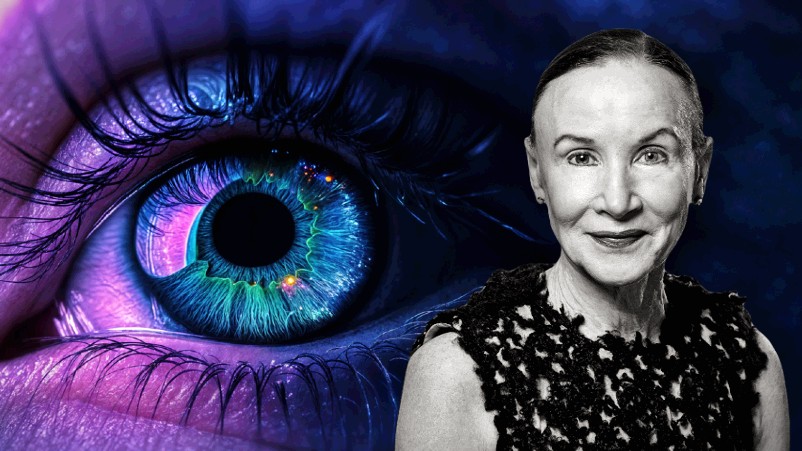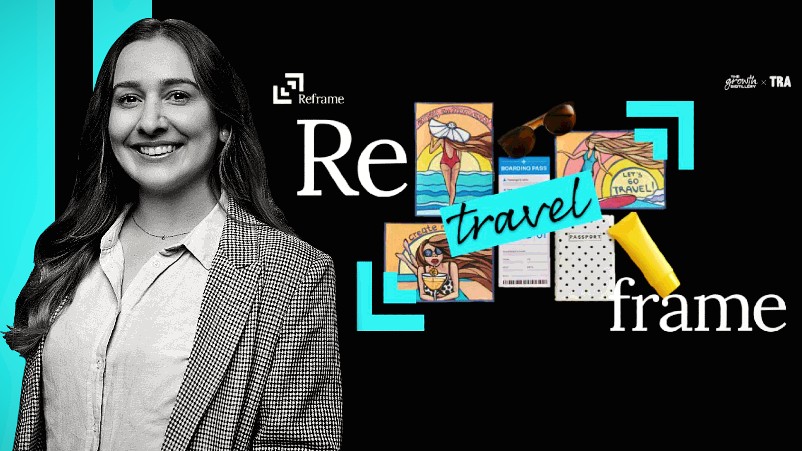'Reduce the fluff' on ESG: Media agencies and owners face 'demonstrable' compliance in two years

Alchemy One MD, Joel Trethowen: ESG is the new competitive advantage – and takes at least two years to prove, so start now.
There's only two media agencies in the country that are certified as Bcorps – and they are both indies. That means they are genuinely walking the talk on ESG, doing right by people and planet, whereas others are still just... talking. Time for some action, says Alchemy One MD Joel Trethowan.
What you need to know:
- ESG – businesses doing good by the world and people – is top of the CMO agenda.
- The world’s biggest ad buyers are creating environmental, social and corporate governance (ESG) metrics – and in Australia agencies are already putting it on the negotiating table, while blue chips brands have served notice to publishers and agencies.
- That’s because global financial institutions are weighting investment criteria around ESG, a key financial reporting aspect.
- Federal Australia is woefully behind the curve, but states are making their own mandates.
- Only two of Australia’s indy media agencies can genuinely claim to walk the talk on ESG, having gained Bcorp status.
- One of those agencies, Alchemy One, thinks demonstrable ESG adherence will be table stakes within two years as brands drive change throughout their media supply chains.
- Bcorp certification takes at least two years, is “really hard” and may require agencies to relinquish booze, fossil fuel, gambling and other clients while contractually formalising how they do good by people and planet.
- Start the journey now to avoid ESG Darwinism, says Alchemy One MD, Joel Trethowen.
There will be more and more pressure for businesses to have more transparent models, reduce the fluff and actually be able to prove what they're saying [on ESG].
Media agency holding groups are putting ESG on the negotiating table with media owners for 2022, driven by brand corporate social responsibility mandates. But only two Australian media agencies have achieved a credible, third-party audited scorecard for ESG – and both of them are indies, Benedictus Media was the first, followed in November by Alchemy One.
Joel Trethowan, MD at Alchemy One, thinks bulletproof ESG credentials will become table stakes for the media supply chain in the next two to three years. Given Bcorp certification at best takes two years to complete – Bcorp certification is independently-accredited proof that business are walking the talk on ESG – Australia’s media sector is cutting things fine.
“Whether it's purpose, whether diversity and inclusion – brands want the data rather than just the fluff which our industry is so good at talking about,” Trethowan told Mi3.
“There will be more and more pressure for businesses to have more transparent models, reduce the fluff and actually be able to prove what they're saying.”
Doing nothing not an option
Trethowan urges media agencies and owners to grasp the nettle, commit to at least coming up with a plan, publishing it and committing to deliver. Perfection, he said, should not be the enemy of progress.
“People are scared of making wrong steps. So many brands get called out for greenwashing or campaigns where it seems they're not truly who they say they are at heart – brands are too scared of not doing things 100 per cent right,” he said. “But you can start small. Even to show they are thinking about going on the journey [is a start], planting some stakes in the ground to show that you're working on some kind of strategy.”
But for brands, agencies and publishers that are serious about delivering and gaining competitive advantage from ESG, Trethowan said Bcorp certification should form the bedrock of that plan.
What’s a Bcorp?
To achieve Bcorp certification, companies must meet minimum standards of social and environmental performance. They are assessed every three years and pay a fee for the certification based on their sales. The scheme is run by US-based non-profit B Lab and to date, there are some 3,900 certified Bcorps across 70 countries.
Lorna Davis, former CEO and Chair of Danone North America, is a Bcorp board member. To meet the minimum standard “you have to score more than 80 points out of 200,” she told Mi3 earlier this year.
“You also have to change your legal framework so that you make a legal and public commitment to have a wider range of stakeholders than your financial ones. So you have to actually declare your environmental and social commitments for your company.”
Bcorps include Athleta, Patagonia, The Body Shop and Ben & Jerry’s. See a list of Australia’s Bcorps here.
The hardest part is just dedicating yourself to the process. Because it is daunting. I'm not going to lie, it was hard.
Where to start, hardest parts
Anybody who has looked into Bcorp certification soon realises it’s a tonne of work. But that’s why it’s the gold standard.
“With some of the questions, we didn’t know where to start,” said Alchemy One’s Joel Trethowan. But the agency dedicated four team members to work through the task (a quarter of its workforce) “and brainstormed, workshopped… and workshopped… and workshopped,” he added.
“The hardest part is just dedicating yourself to the process. Because it is daunting. I'm not going to lie, it was hard.”
Over two years, the agency worked though all of its policies, across environmental practices, staff wellbeing, diversity and inclusion, pro bono work, in some cases rewriting contracts.
Bcorp certification also requires companies to disclose whom they work with in terms of industries seen as harmful.
“We haven't accepted any clients from the fossil fuel industry, from the tobacco industry, the alcohol industry or the gambling industry in our entirety as Alchemy One. But for other companies, that would be very difficult for them to say,” said Trethowan.
“Bcorp requirements don’t necessarily preclude you from working with those industries – Stone & Wood is a Bcorp. But it just unlocks, depending on the category, lots of additional questions that might impact your score,” he added.
“People often think Bcorp is only about environmental focus, and that's it. But it’s the highest environmental and social standards globally for business. So the social standards are equally important, if you're inadvertently supporting something negative, whether it's tobacco or gambling… there are more questions to answer. We don't know the questions it unlocks. But it's part of that disclosure questionnaire.”
Bcorp as business engine
Now certified, Alchemy One thinks Bcorp status will increasingly be a competitive advantage in winning and retaining clients. It’s biggest client, Bank Australia, achieved Bcorp certification a year ago and Trethowan said going through the process alongside the bank has “100 per cent bought us closer together.”
But Bcorp is all about continuous improvement. Alchemy One is now working on its reconciliation plan and in early 2022 will publish its net zero target and strategy with the aim of achieving net zero carbon emissions within two years.
Given New South Wales and Victorian governments have committed to halving carbon emissions by 2030, all businesses that operate within the states will need to significantly ramp-up decarbonisation plans.
Some of Australia’s biggest advertisers including Commbank, IAG, Suncorp, Telstra, Westpac and Woolworths are committing to decarbonise their operations – and their supply chains, which ultimately includes media owners, agencies and tech providers (see this story).
Some publishers and agency holding groups have grasped the nettle.
- The Guardian last year committed to reach ‘net zero’ emissions by 2030, eliminating two thirds of its carbon footprint and offsetting the rest.
- News Corp has pledged to reduce its carbon footprint 60 per cent by 2030 and to be net zero carbon by 2050.
- JCDecaux has been certified as carbon neutral in Australia since 2015.
- Publicis has set out plans to be net zero carbon by 2030, and use 100 per cent renewable power by the same date.
- WPP in April committed to achieve net zero carbon emissions from its own operations by 2025, and net zero emissions across its entire supply chain by 2030.
- IPG in June signed up to reach net zero carbon by 2040 and 100 per cent renewable power by 2030.
- Dentsu has already switched to 100 per cent renewable power and pledged to reach net zero emissions by 2030.
We’re trying to leverage Bcorp as a competitive advantage, as our differentiator. But we're happy to share the knowledge, because then... everybody wins.
Start now, or fall behind
Decarbonisation will be a major challenge for Australia’s biggest media companies. Film and TV production has a particularly heavy carbon footprint.
“It’s daunting, especially in that industry,” said Trethowan. “It is much easier for a small company like us [than the large firms]. But I would implore those industries to create a roadmap and publish it. You don’t have to do everything at once. Start with small steps.”
Trethowan said Alchemy One is happy to help other agencies get started.
“We’re trying to leverage Bcorp as a competitive advantage, as our differentiator. But we're happy to share the knowledge, because if we can create a better industry, that's amazing – everybody wins.”
Meanwhile, Alchemy still has a two-year head start. “And we’re already moving on to our next targets.”


